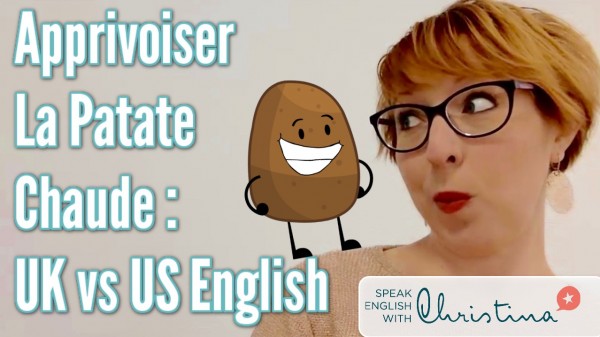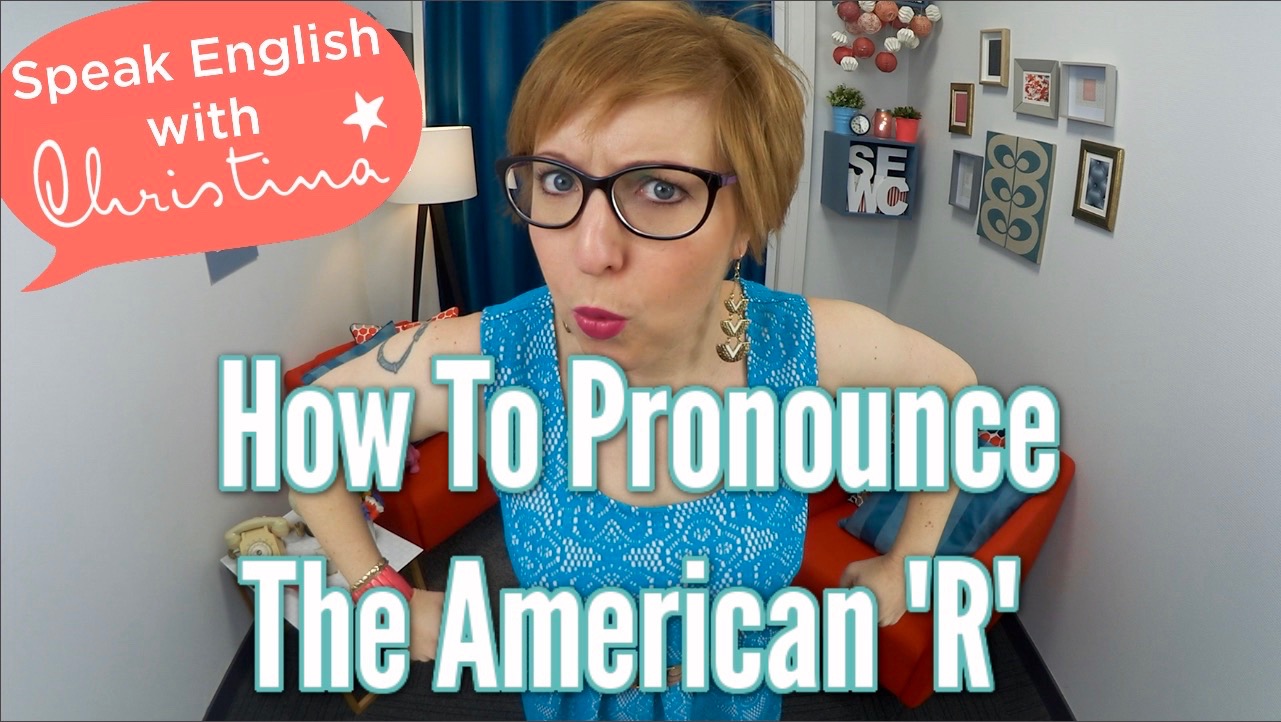
Hey there, and welcome to Speak English with Christina, where you’ll have fun becoming fluent in American English. Have you ever noticed that sometimes, there’s a BIG difference between the expressions you learned in school, and the way Americans really talk.
You hear these expressions a lot, and you have no idea what they mean! But all that’s going to change today., thanks to some suggestions from 5 wonderful Speak English Ambassadors who shared these expressions with us. Let’s go!
You know that I’m all about teaching you English the way Americans really speak it. Like with my free American Accent Survival Kit. so you can start understanding Americans when they talk fast, and when they use expressions like….
AIN’T
Ah, ain’t! Laetitia was right, you’ll hear “ain’t” a lot, even if it’s not correct English. What does it mean? Am not, or Is not, or are not, or have not. Depends on the context.
For example, you might hear “I ain’t feeling too well” to mean I’m not feeling too well. Or “He ain’t coming with us” to mean “He’s not coming with us.” Or “They ain’t in stock” for “They’re not in stock”, or “I ain’t never been to Las Vegas” to mean “I have never been to Las Vegas.”
Or, as my teachers used to say “Ain’t ain’t in the dictionary.” which means the word “ain’t” isn’t in the dictionary.
Technically speaking, it’s not correct English to say “ain’t.” But guess what, a lot of Americans use it anyway. It’s not bad, or insulting. It’s just not really correct. But spoken English isn’t always correct school English. It’s the way people really speak.
I WAS LIKE…
If you’ve ever listened to an American tell you a story, you’ve heard “I was like…”, Estelle pointed this one out. We use it mostly when telling a story about something that happened, or summarizing a discussion we had with someone else.
Here’s an example:
I was talking to my mom on the phone the other day and I was like “Where do you want to go to dinner?” And she was like “I don’t know, let me ask your dad what he wants to do.” And I was like “OK, that sounds good.” I could have also said “I said…” and “She said…” but we more often use “I was like…”
We also use it to describe our reactions to something someone tells us. For example “My sister told me she was going to create her own dance school, and I was like “That’s so cool! I want to take lessons!” So I used “I was like” to describe the way I reacted to my sister’s announcement.

HOW COME
Can you guess the meaning of this expression, which Sandra suggested. Let me give you some examples : How come you want to go to Disneyworld? How come you don’t want to go to the beach? How come you didn’t tell me you got a new job?
Do you know what “how come” means?
“Why. “ It means why. But instead of saying “Why didn’t you tell me?” You’ll often hear Americans say “How come you didn’t tell me?” Instead of “Why do you want to go to Disneyworld?”, we’ll say “How come you want to go to Disneyworld?”
WHAT YOU WANT TO DO IS…
Héloïse suggested this expression! She was watching a video in English on how to install a car seat, and the guy in the video often repeated “What you want to do is….”
In real English, it sounds like /whutchuh wanna do wiz/ /whutchuh wanna do wiz/. It means “You need to do…” when you’re giving instructions to someone.
For example, if you want to get the American Accent Survival Kit, what you want to do is go to christinarebuffet.com. Then what you want to do is click on “Bonuses” and then the survival kit. And then what you want to do is sign up to get it for free! And that’s how we sometimes give instructions in English!
CATCH UP
Valérie, this one’s for you! “Catch up” sounds a lot like ketchup, the sauce you eat on French fries, but no.
The expression “to catch up” means a few different things.
For example, “I’ll catch up with you later” I’ll catch up with you later means “I’ll join you later.” Your American friend might tell you “You go on to Starbucks, and I’ll catch up with you later.” You go to Starbucks now, and I’ll join you later.
Or if you have to end a conversation, with a colleague before a meeting, you can say “Listen, let’s catch up after the meeting. I want to ask you about….” Listen, let’s catch up after the meeting, and it means “let’s continue the conversation later.”
Now what about you?
Let’s catch up in the comments! Let’s continue the conversation.
What other surprising expressions have you learned in English? Share them in the comments so we can all learn from you!
And if you want to continue learning English the way Americans really speak it, get the American Accent Survival Kit!
Thanks so much for improving your English with me, I’m Christina, and I’ll see you next week!

<script async data-uid=”8b458f887b” src=”https://f.convertkit.com/8b458f887b/09faf432ac.js”></script>
More English lessons...
Click the image to see the lesson








Thank you so much Christina. In fact, I often listen to “ain´t” a lot and sometimes “catch up” but seldom “was like” or ” how come”. I´m so pleased to Know how to use them correctly. Your videos are so useful and entertaining. Thanks again Christina.
Ah, so you already knew a few of these expressions! Good for you! And yes, now you can try to use them when you speak English too! Challenge accepted? 😉
I’ve just watched the video on “5 Everyday English Expressions You Never Learned in School”; What about “WHAT FOR” is it a British or an American expression?
Good question, Marie! “What for?” is both British and American, and it’s a good expression to know, because we often use it to mean “Why?” For example:
“I’m going to the grocery store.”
“What for?”
“To get some ice cream.”
But we use it on both sides of the Atlantic!
Hi there,thanks a lot,I read out it few of words sometimes I never understand its meaning.So now it is clear for me.
Hi Christina, it’s not an expression but now i’m confused with the word “realize”. I use it as “to understand a situation or notice something” like I realized how much i missed him. But i came across an article that uses it in a different meaning, and also dictionaries say it has the meaning of making a dream come true or reach a goal, like “He realized all his ambitions by the age of 30.” Is it also correct? Thank you!